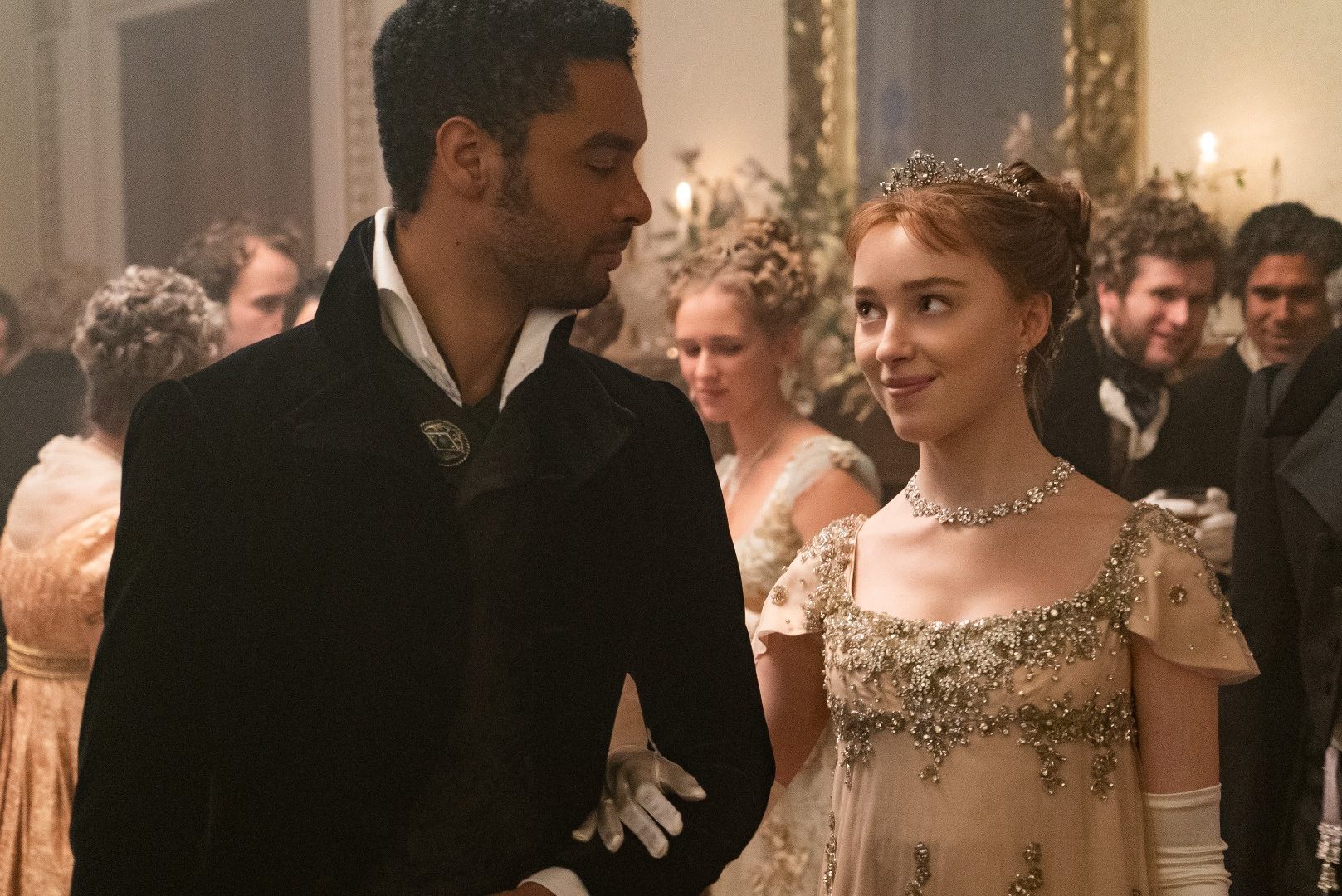Warning to the reader, spoilers for “Bridgerton” ahead!
The white lace sleeves of her dress laid elegantly against her shoulders. Tall feathers poked out from the top of her intricate braids. She made her way slowly down the aisle, her gaze fixed confidently in front of her. The crowd stood speechless, all eyes locked on her. She approached the throne and bowed before the queen, smiling modestly. Inspired by her beauty, the queen rose from her throne and walked forward to face her. Kissing her forehead, the queen whispered in Daphne’s ear, “Flawless, my dear.”
Netflix recently released the new TV series “Bridgerton” in December. The show is based on a bestselling novel series by Julia Quinn; the first season, and the only season that has been released on Netflix thus far, is based on the first book in the series, “The Duke and I.”
The show follows Daphne, the eldest daughter of the Bridgerton family. The Bridgertons are a high society London family in the 1800s. The series begins with Daphne Bridgerton (played by Phoebe Dynevor) as she makes her debut into society, signifying that she has officially begun her search for a respectable husband.
“Bridgerton” is composed of romance, drama and feminist ideology that challenges the viewer’s perspective and makes the audience question whether society is really all that different from the 1800s.
The women displayed in the show have one goal in life: to get married. Women are discouraged from pursuing careers and taught to find a husband not based on love, but upon mutual economic benefit. The women of “Bridgerton” are discouraged from even participating in intellectual activities such as reading and writing.
“Bridgerton” is narrated by an anonymous woman writer who publishes her work under the pen name Lady Whistledown. Lady Whistledown’s writing exposes the corruption and drama behind high-societal courting and marriage. Her writing is widely read by the women in the show and allows them to bond over the drama.
The last episode in the series reveals that Lady Whistledown is a woman of high society. She would have been cast out from society and potentially faced charges from the queen had she published her writing using her real name, so she published her work using a fake identity.
Even though women today have the opportunity to publish under their own names, society is not far off from the ideals of the 1800s. Women are still largely encouraged to marry, while the wage gap and gender discrimination in the workplace discourage women from pursuing careers.
The newly elected American vice president, Kamala Harris, is a beautiful example of the progress of women’s rights. Harris is the first woman to step into the role of vice president of the United States. Before Harris, 45 white men have held her office. Her vice presidency is a monumental step for women and Black Americans. Although we are hundreds of years past the 1800s, the barriers placed on women still exist and are ever so slowly being broken thanks to brave women such as Harris.
Professional careers are not the only thing limited on the basis of gender. Another feminist topic explored in “Bridgerton” is the difference in the way sex is viewed between genders.
In “Bridgerton,” Daphne is never told what sex is. Before her wedding night, her mother gives her a very vague overview of sex and sends her in unprepared. Confused, Daphne comes to understand sex as she participates in the act for the very first time with her husband. Even so, Daphne’s knowledge of sex is extremely limited, and she confesses that she is not sure how children are conceived. This lack of understanding fosters frustration and resentment in Daphne toward her mother and husband; she feels that they have manipulated her naivete.
In comparison, Daphne’s older brother Anthony frequently participates in premarital sex with a woman of low society. If roles had been reversed and Daphne did this, her place in society would have been soiled. However, purely because Anthony is a male, he remains untouched and is allowed to do as he pleases.
Today, we see that sex is often viewed in the same way. Men are encouraged to have as much sex as possible, and society affirms men’s sexuality by telling them sex makes them masculine and cool. In comparison, women are taught that having sex makes them disgraceful and undesirable. Women are discouraged from discussing sexuality and participating in sex at all.
It’s no longer the 1800s but it is surely not a time to pat ourselves on the back. “Bridgerton” exposes societal norms for what they are and shows its viewers that feminist ideals were important then and are still important today.

















